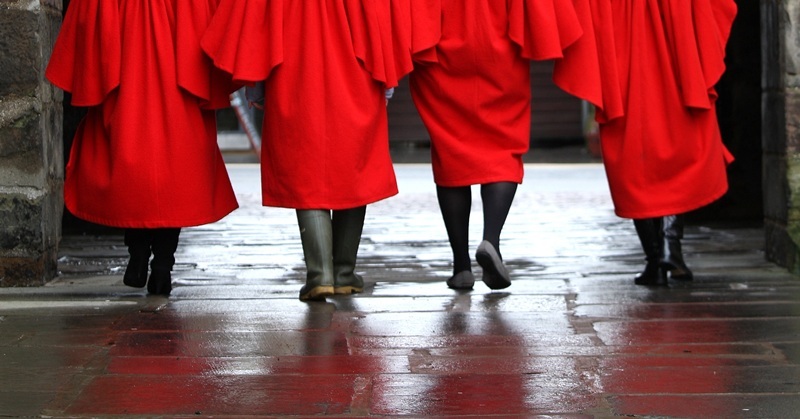St Andrews University professor James Naismith has said it was ”to his shame” as a Scotsman that £9,000 tuition fees were being introduced for UK students coming from outwith Scotland.
Addressing the university’s first St Andrew’s Day graduation ceremony this week, the professor also accused politicians of making up policy on the hoof and said the university’s future could not be trusted ”to people whose concern is tomorrow’s headline.”
Professor Naismith said the future, in the long run, was bright for graduates.
He said: ”This seems complacent, given we are living through the worst economic turmoil probably since the 1930s.
”Yet, we can exaggerate our misfortune.
”A St Andrews graduate reaching 20 in 1930 could look forward to a further 30 years of life.
”Those reaching 20 today can look to double that. Those extra years will be vastly healthier, safer and productive.”
He added: ”There is a lot to worry about.
”However, the world needs smart, talented and hard-working people like you.”
But, he said, what of the more immediate future?Prosperity linked to educationProfessor Naismith said: If universities were sports, the UK would lie second only to America in the medal table.
”I believe the education that a society provides is linked to the prosperity it enjoys.
”There are more than a few splinters in the eye of UK higher education, but society has ignored a builder’s yard of planks elsewhere.
”Universities are sailing in a particularly tempestuous sea rocks are clearly in sight.”
He added: ”Governments in Scotland and the UK are ending the university system as we have known it.
”To my shame, as a Scot, the University of St Andrews has had little option but to charge UK students outwith Scotland £9,000 per year.
”My strong suspicion is that governments and their oppositions are making up policy as they go, focused only on how ‘it plays in the media’ or ‘advances an agenda’.
”In today’s storm we cannot trust the future of this world-beating 600-year-old institution to people whose concern is tomorrow’s headline.”’Will you take the wheel?’However, Professor Naismith said that the university had weathered storms in the past.
He said: ”On each occasion the university has been saved by its members, the best who saw the challenge, met it and steered us to safer waters.
”Today’s storm is one of these rare but defining moments. There is no question that our actions will be judged by our successors the only question is their verdict.
”We, academics, graduates, their parents and supporters must navigate this storm. Together we cannot fail, but without all hands, the ship could be wrecked before the sea is flat again.”
Turning to the new graduates, he added, ”It is to you that the bulk of the task has fallen. Each of you must choose.
”Will you abandon St Andrews, leaving it to the whim of ‘here today, gone tomorrow’ politicians?
”Or, will you take the wheel, actively participate in the General Council, help improve teaching and research, help govern and renew the university and, most importantly, ensure academics continue to play the right tune for your successors?’
